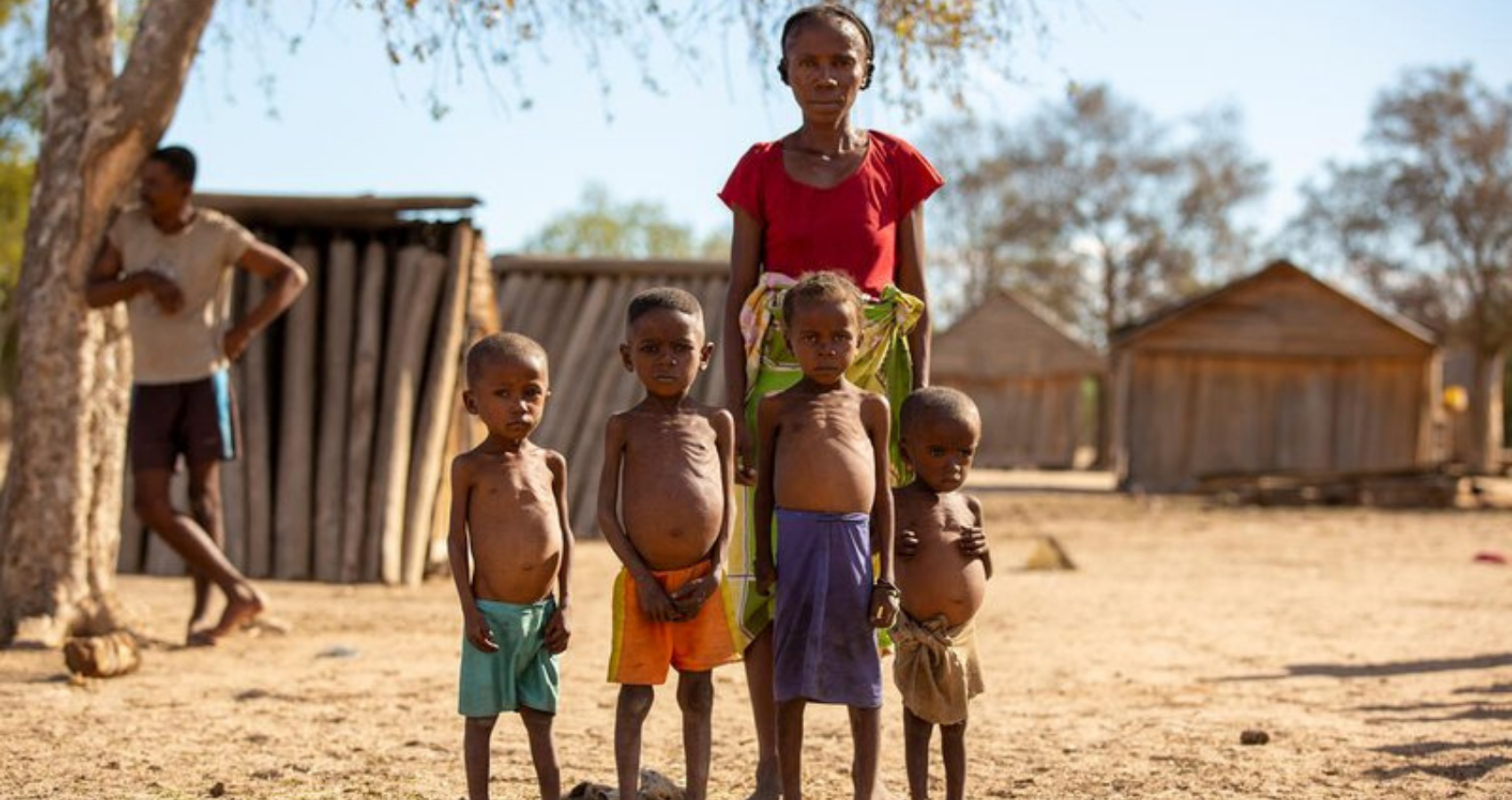
Madagascar Is Suffering The World’s First Climate Change-Induced Famine
The island has gone four years without rain as locals scavenge for insects to survive.
Southern Madagascar is on the brink of experiencing the world's first famine induced by climate change, according to the United Nations. The East-African island country hasn’t received rainfall in four years, marking the ongoing drought as the worst since 1981. Recent UN estimates reveal that 30,000 people are experiencing “catastrophic” food insecurity at the highest internationally-recognized level.
Local families have resorted to scavenging for insects such as locusts, raw cactus leaves and wild fruit in a desperate attempt to survive. In a report by the BBC, a local from Fandovia village in Madagascar said, “I clean the insects as best I can but there's almost no water.” Tamaria, a mother of four, elaborated, “My children and I have been eating this every day now for eight months because we have nothing else to eat and no rain to allow us to harvest what we have sown.”
Another Malagasy woman, Bole, revealed that her husband and neighbor had recently died of hunger.
A UN report declared that over 500,000 children under the age of five are at risk of malnutrition between May 2021 and April 2022. “This is unprecedented. These people have done nothing to contribute to climate change. They don't burn fossil fuels… and yet they are bearing the brunt of climate change,” said Shelley Thakral of the UN World Food Programme. The crisis is anticipated to worsen, as the lean season before harvest is approaching and locals have been unable to produce crops.
The recent IPCC report confirmed that Madagascar is experiencing high levels of aridity as the Southern region’s soil has dried out. Larger, more populous towns are also experiencing the drought’s effects as children are compelled to beg for food on the streets.
This worsening humanitarian crisis in Madagascar confirms the disproportionate effects of climate change on local populations. As corporate giants and wealthy governments in the global North pillage the Earth’s resources and inflate atmospheric carbon emissions, the fragile ecosystems of sustainable local communities in the global South suffer.
Bole, mother of three, reflected, “What can I say? Our life is all about looking for cactus leaves, again and again, to survive.”











